Konservování masa (1951)
장르 : 다큐멘터리
상영시간 : 0분
연출 : Věra Tatterová
각본 : Věra Tatterová
시놉시스

Charles Duchemin, a well-known gourmet and publisher of a famous restaurant guide, is waging a war against fast food entrepreneur Tri- catel to save the French art of cooking. After having agreed to appear on a talk show to show his skills in naming food and wine by taste, he is confronted with two disasters: his son wants to become a clown rather than a restaurant tester and he, the famous Charles Duchemin, has lost his taste!

패스트푸드를 좋아하세요? 비만인가요? 영화 는 패스트푸드, 비만인 소비자와 다국적기업간의 관계를 파헤치고, 학교 급식, 건강의 기준, 다이어트, 중독에 대한 공포를 보여준다. 감독 모건 스펄록은 촬영이 진행되는 한달 내내 맥도날드 제품만을 먹으며 자신을 실험대상으로 사용하고, 의사, 요리사, 청소년, 체육교사, 변호사등과의 인터뷰를 통해, 패스트푸드를 애호하는 미국인들이 합법적, 재정적, 물리적으로 치루는 대가가 무엇인지 찾아간다. (2004년 제9회 부산국제영화제)

맥도날드는 레스토랑에 공장시스템을 적용하여 한 직원에게 한 가지 일만 시켜 급여를 줄인다. 무서운 성장 속도로 소고기, 감자, 돼지고기, 닭고기, 토마토, 양상추, 사과 등의 최대 수요자가 된다. 이는 식품회사의 급속성장 초래해 1970년대에는 5개의 식품회사가 소고기 시장의 25%를 차지했다. 그러나 지금은 4개의 식품회사가 소고기 시장의 80%를 차지하고 있다. 돼지고기 시장도 상황은 마찬가지이다. 이제는 패스트푸드를 먹지 않더라도 이러한 시스템에서 생산된 고기를 먹고 있다. 50년 전보다 절반의 시간으로 키워지고 도살되는 닭들. 그러나 성장촉진제(항생제)를 먹여 크기는 2배 더 커져 뼈와 장기가 급속한 성장으로 인해 몸을 가누질 못하는 실정이다. 비위생적인 집단사육과 병든 닭도 가리지 않고 상품화하고 있다.
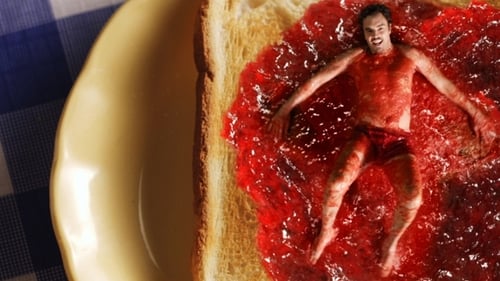
설탕 다이어트가 건강한 신체에 미치는 영향을 문서화하기 위해 실험을 시작합니다.
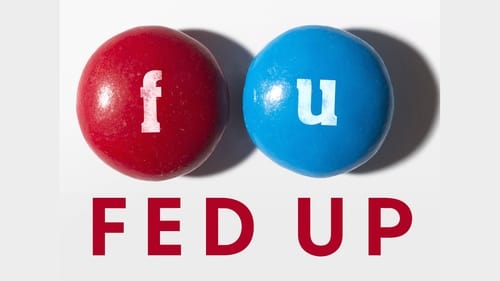
건강 관련 다큐멘터리
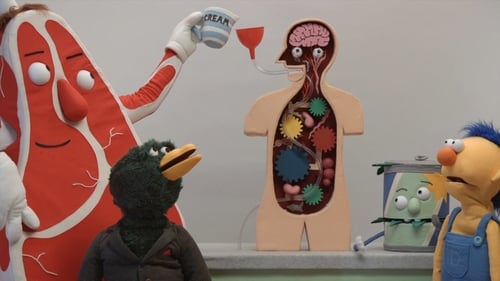
The two remaining puppets learn about eating healthy, but things go awry when they receive a mysterious phone call.
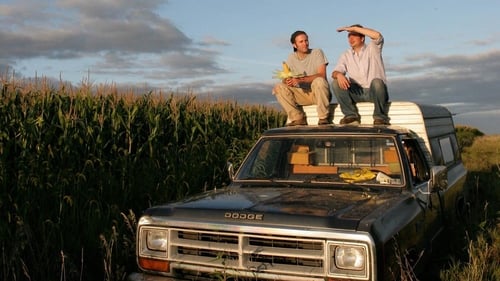
King Corn is a fun and crusading journey into the digestive tract of our fast food nation where one ultra-industrial, pesticide-laden, heavily-subsidized commodity dominates the food pyramid from top to bottom – corn. Fueled by curiosity and a dash of naiveté, two college buddies return to their ancestral home of Greene, Iowa to figure out how a modest kernel conquered America. With the help of some real farmers, oodles of fertilizer and government aide, and some genetically modified seeds, the friends manage to grow one acre of corn. Along the way, they unlock the hilarious absurdities and scary but hidden truths about America’s modern food system in this engrossing and eye-opening documentary.

An enterprising youngster in a slum wants his people to lead a life of dignity, but has to take on an ambitious capitalist, who only wants to dominate his field.

A food safety officer and a teacher who has no sense of smell come together to fight the practice of food adulteration and its devastating effect on people.
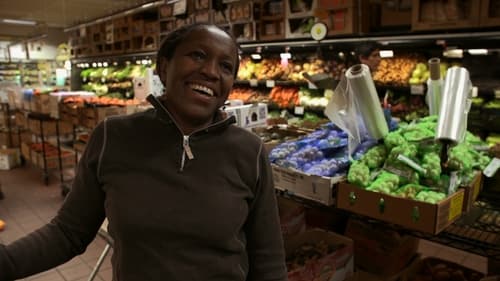
In the middle of an economic crisis, in the shadow of Wall Street, an institution that represents a less well-known American tradition is booming. The Park Slope Food Coop: a cooperative supermarket where all 16,000 members work 3 hours per months to earn the right to buy the best food in New York at incredibly low prices. The success of this cooperative is a bad new for capitalism and aggro-alimentary business, and an opportunity to change the food production and distribution systems. We will see what has become of the Park Slope Food Coop, now a well-rooted institution in the heart of Brooklyn: the way it functions, its hundreds of rules, the diversity and eccentricity of its members. We'll see how the culture that has been created at the coop gives its members daily visceral lessons in democracy, how this could represent a potential change in mentality for Americans faced with increasingly difficult economic times.

Obesity rates in the United States have reached epidemic proportions in recent years. Killer at Large shows how little is being done and more importantly, what can be done to reverse it. Killer at Large also explores the human element of the problem with portions of the film that follow a 12-year old girl who has a controversial liposuction procedure to fix her weight gain and a number of others suffering from obesity, including filmmaker Neil Labute.

A team of journalists investigate how human trafficking and child labor in the Ivory Coast fuels the worldwide chocolate industry. The crew interview both proponents and opponents of these alleged practices, and use hidden camera techniques to delve into the gritty world of cocoa plantations.
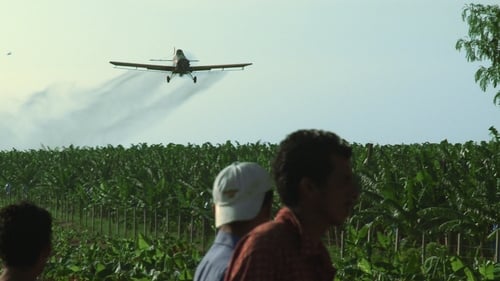
Juan “Accidentes” Dominguez is on his biggest case ever. On behalf of twelve Nicaraguan banana workers he is tackling Dole Food in a ground-breaking legal battle for their use of a banned pesticide that was known by the company to cause sterility. Can he beat the giant, or will the corporation get away with it?

Industrial food production has provided the public with an abundance of food at very low prices. But with obesity and diabetes at record levels in Europe, there is clearly a problem with the food we eat. This documentary puts the spotlight on the agri-food industry and reveals how low-cost ultra-processed foods are really made.

Ever since it was revealed that the chocolate industry is involved with child slavery in the Ivory Coast, the industry has been busy – due to consumer demands – explaining what exactly it does to actively fight trafficking and child labour. But does the industry live up to its own promises?In this investigative film, director Miki Mistrati tries to find out, if the chocolate industry – which is one of the largest corporations in the world – speak the truth, when they say that they provide education, medical care etc for the children of the Ivory Coast. But the project runs into trouble already from the get-go, because the embassy of the Ivory Coast won’t let Miki enter the country until he has an invitation – from the chocolate industry.

Food in the 21st century has become much more than “meat and potatoes” and canned soup casseroles.” Chefs have gained celebrity status; recipes and exotic ingredients, once impossible to find, are now just a mouse click away; and the country's major cities are better known for their gastronomy than their art galleries. This food movement can be traced back to one man: James Beard. His name graces the highest culinary honor in the American food world today—the James Beard Foundation Awards. And while chefs all around the country aspire to win a James Beard Award, often referred to as the “culinary Oscars,” many of those same chefs know very little about the man behind the medal. Respected restaurateur Drew Nieporent summed it up when he said, “Everybody knows the name James Beard. They may not know who he is, but they know the name.”
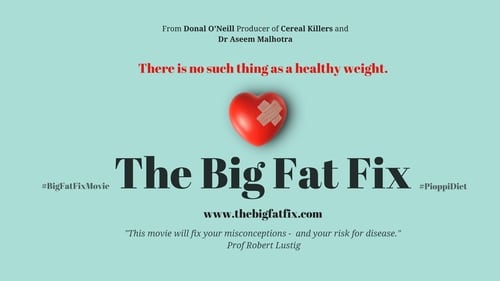
The Big Fat Fix (www.thebigfatfix.com) investigates and uncovers the forgotten secrets of health and longevity from the tiny Italian village of Pioppi, where the people forget to die. Featuring Dr Aseem Malhotra and Donal O'Neill. From the creators of Cereal Killers (2013) and Run on Fat (2015).

Jamie Oliver investigates sugar's huge contribution to global health problems like obesity and type 2 diabetes, reveals how much sugar is in healthy-looking food, and explores what can be done to help
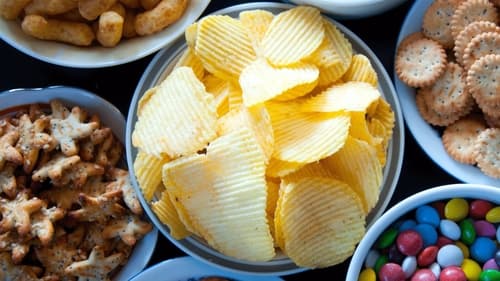
Sales of organic products have increased tenfold in 20 years. In 2020, the market will have exceeded 13 billion euros in sales. The heavyweights of the food industry are surfing on this consumer craze for healthy food by offering more and more "green" products. But organic does not necessarily mean nutritionally balanced.

Within the last half century, our agriculture and food has changed more than it has changed before in several thousand years. New technologies and scientific ingenuity have given rise to genetically modified organisms (GMO) and other novel foods. Some people have raised concerns about the safety of GMOs in our food supply, given their incredible dominance in the majority of our diet. Traditional, organic farmers, have consistently been under attack by large corporate farming interests, who seek to dominate the food industry and run family farms out of business. This film looks at our current food system as well as a variety of smaller, organic options available to consumers who want to support sustainable farming methods.

















